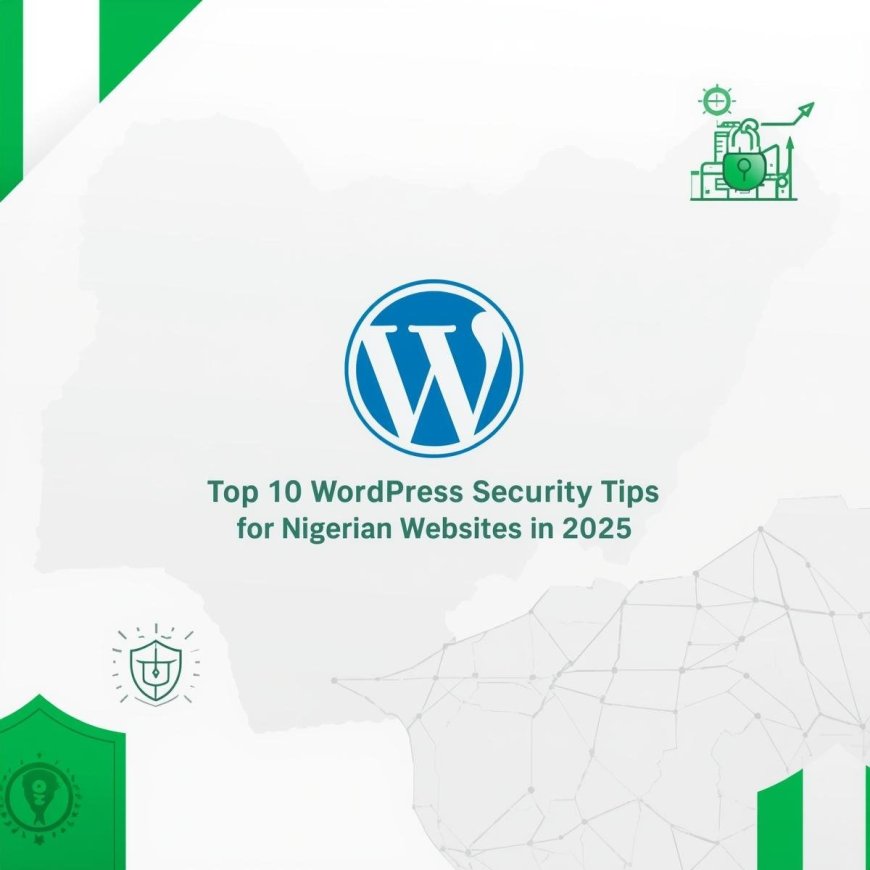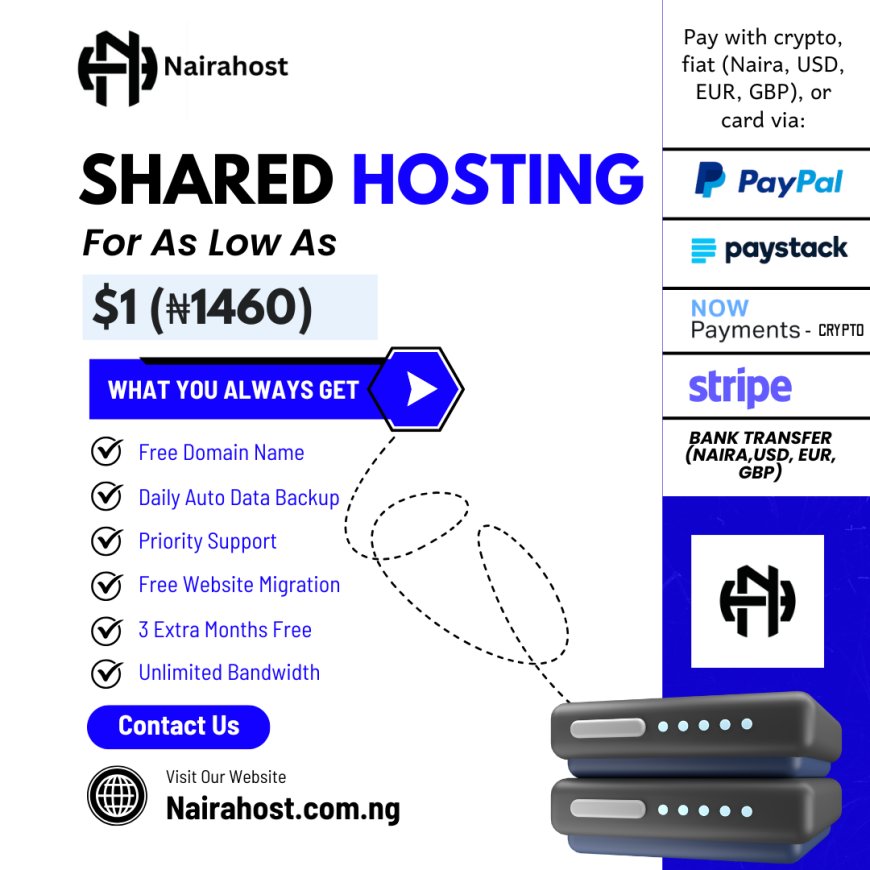Top 10 WordPress Security Tips for Nigerian Websites in 2025
Protect your WordPress website in Nigeria with these 10 essential security tips in 2025. Learn how to prevent hacks, secure user data, and maintain trust.

WordPress is the most popular website platform in Nigeria, powering blogs, business sites, and online stores. However, its popularity also makes it a target for hackers. In 2025, website security is critical, not just for protecting your content, but also for safeguarding user data, maintaining trust, and improving SEO.
This guide provides 10 essential WordPress security tips for Nigerian websites, covering hosting, plugins, backups, and best practices to keep your website safe and resilient.
Step 1: Choose a Secure Hosting Provider
Your website’s security starts with your hosting provider. NairaHost offers:
-
Local Nigerian servers → faster response and better monitoring
-
Secure WordPress hosting plans → pre-configured for protection
-
Automatic backups and SSL integration
Recommendation: Always choose hosting with firewalls, malware scanning, and automatic updates.
Step 2: Keep WordPress, Themes, and Plugins Updated
Outdated software is a primary entry point for hackers.
-
Update WordPress core as soon as new versions are released
-
Update themes and plugins regularly
-
Remove unused plugins and themes
Tip: Enable automatic updates for minor WordPress releases.
Step 3: Use Strong Login Credentials
Weak usernames and passwords are common vulnerabilities.
-
Avoid “admin” as your username
-
Use strong, unique passwords with letters, numbers, and symbols
-
Enable two-factor authentication (2FA) using plugins like Wordfence or Google Authenticator
Step 4: Install a Security Plugin
WordPress security plugins provide firewall protection, malware scanning, and login protection.
Recommended plugins for Nigerian sites:
-
Wordfence Security → firewall, malware scan, login protection
-
iThemes Security → brute force protection and file change detection
-
Sucuri Security → advanced monitoring and blacklist removal
Step 5: Enable SSL Certificate (HTTPS)
SSL encrypts data between your site and users, essential for trust and SEO.
-
NairaHost provides free SSL certificates with hosting
-
Install SSL and configure redirects from HTTP → HTTPS
-
Check for mixed content issues after installation
Websites with HTTPS rank better on Google and improve visitor confidence.
Step 6: Limit Login Attempts and Block Suspicious IPs
-
Use plugins to limit login attempts
-
Automatically block repeated failed login attempts
-
Monitor and restrict IP addresses from suspicious locations
This prevents brute-force attacks and reduces server load.
Step 7: Backup Your Website Regularly
Backups are your safety net. In case of a hack, you can restore your site quickly.
-
Use UpdraftPlus or BackupBuddy for automated backups
-
Store backups in cloud storage: Google Drive, Dropbox, or Amazon S3
-
Test your backups periodically to ensure they work
Step 8: Disable Directory Indexing and File Editing
-
Prevent hackers from browsing your files by adding
Options -Indexesto your.htaccess -
Disable file editing in WordPress dashboard by adding
define('DISALLOW_FILE_EDIT', true);towp-config.php
These small changes make it harder for attackers to exploit your website.
Step 9: Monitor Your Website for Malware
-
Schedule regular malware scans with Wordfence or Sucuri
-
Monitor unexpected changes in files or database
-
Enable notifications for suspicious activity
Nigerian websites are often targeted by automated bots; early detection prevents major damage.
Step 10: Educate Yourself and Your Team
Security is not just technical—it’s behavioral.
-
Train team members to avoid phishing and suspicious downloads
-
Regularly review security logs
-
Stay updated with WordPress security news
Additional Advanced Tips for Nigerian Websites
-
Use a Web Application Firewall (WAF): Protects against SQL injection and XSS attacks
-
Disable XML-RPC: Unless necessary, to prevent brute force attacks
-
Regularly Audit Plugins: Remove plugins not actively maintained
-
Use Strong Database Prefix: Avoid default
wp_prefix in your database -
Monitor Server Resources: High CPU usage can indicate malicious activity
Conclusion
Website security in Nigeria is more important than ever. By following these 10 tips, you can protect your WordPress website from hacks, safeguard user data, and maintain trust.
Focus on:
-
Choosing secure hosting (like NairaHost)
-
Keeping software up to date
-
Using strong credentials and two-factor authentication
-
Installing security plugins and performing regular backups
Start securing your WordPress site today and ensure your Nigerian audience has a safe and reliable experience.
Secure Your Website Today

 Omoniyi Adedeji Samuel
Omoniyi Adedeji Samuel 






